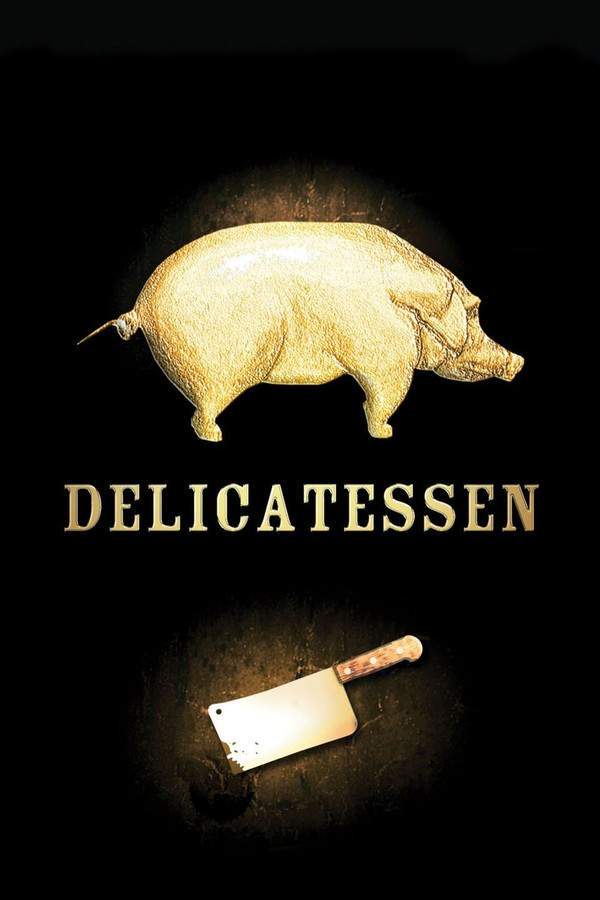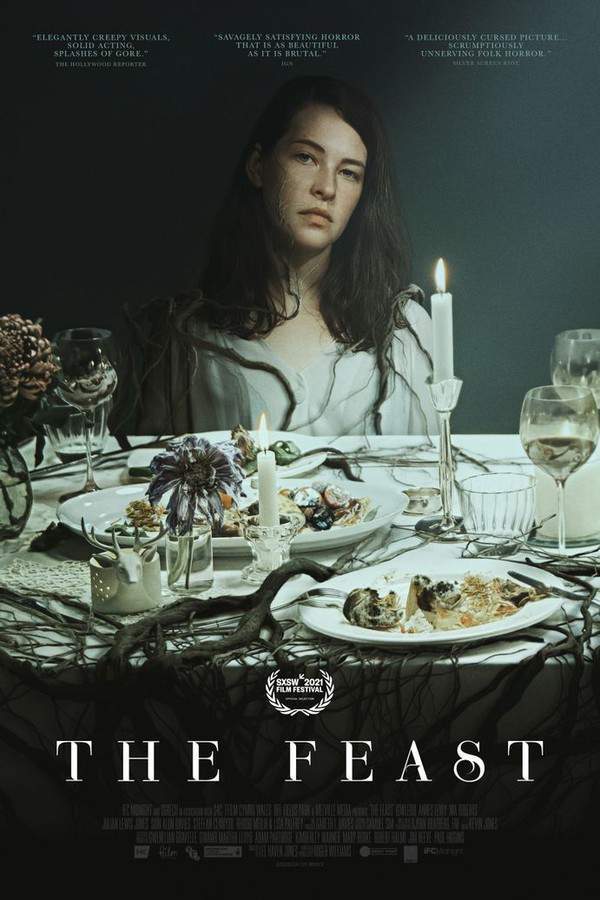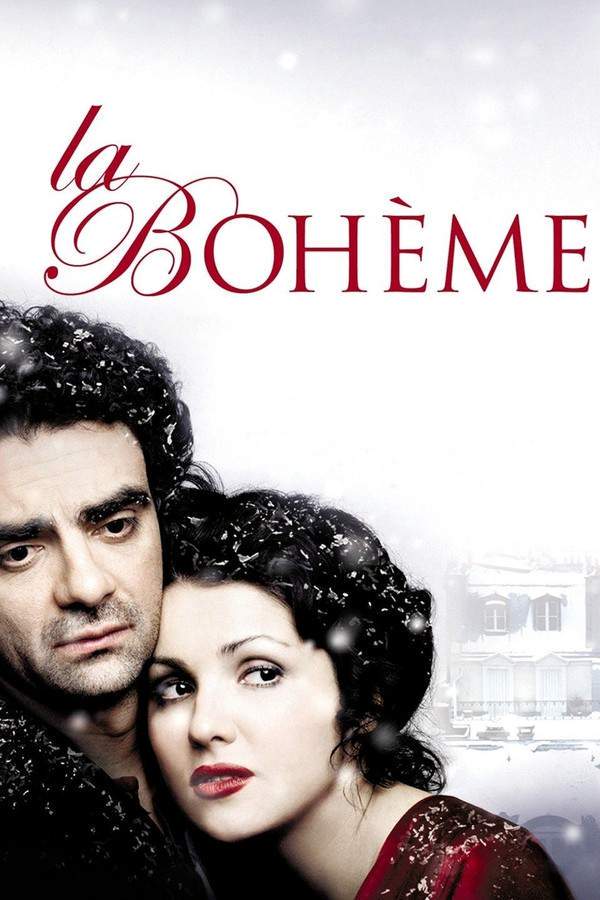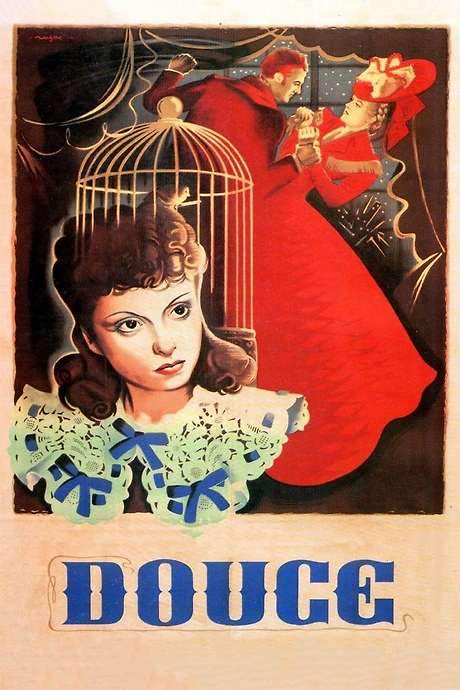Babette's Feast 1988
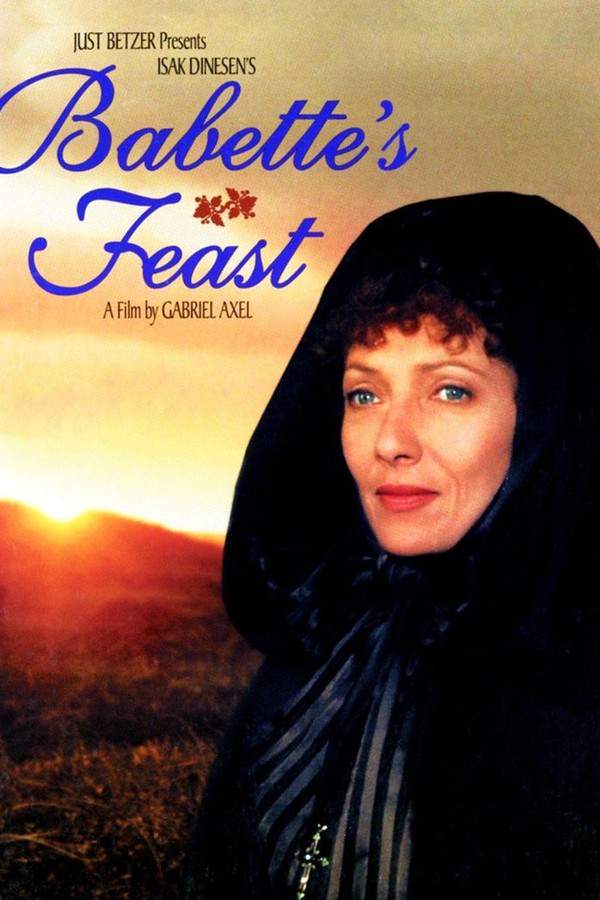
Two sisters, Martine and Philippa, live a secluded and deeply religious existence on the windswept coast of Jutland. Their lives are forever changed by the arrival of Babette, a refugee from Paris with a talent for exquisite cuisine. Employed as their cook, Babette uses her savings to prepare a lavish feast, intending to repay a debt. The meal’s artistry and flavors challenge the community's strict beliefs and awaken long-dormant desires, subtly transforming their lives and offering a glimpse of a world beyond their sheltered existence.
Does Babette's Feast have end credit scenes?
No!
Babette's Feast does not have end credit scenes. You can leave when the credits roll.
Meet the Full Cast and Actors of Babette's Feast
Explore the complete cast of Babette's Feast, including both lead and supporting actors. Learn who plays each character, discover their past roles and achievements, and find out what makes this ensemble cast stand out in the world of film and television.
External Links and Streaming Options
Discover where to watch Babette's Feast online, including streaming platforms, rental options, and official sources. Compare reviews, ratings, and in-depth movie information across sites like IMDb, TMDb, Wikipedia or Rotten Tomatoes.
Ratings and Reviews for Babette's Feast
See how Babette's Feast is rated across major platforms like IMDb, Metacritic, and TMDb. Compare audience scores and critic reviews to understand where Babette's Feast stands among top-rated movies in its genre.

78
Metascore
8.0
User Score


97%
TOMATOMETER

91%
User Score

72
%
User Score
Take the Ultimate Babette's Feast Movie Quiz
Challenge your knowledge of Babette's Feast with this fun and interactive movie quiz. Test yourself on key plot points, iconic characters, hidden details, and memorable moments to see how well you really know the film.
Babette's Feast Quiz: Test your knowledge on the themes, characters, and events from the 1988 film Babette's Feast.
What profession did Babette Hersant hold before moving to Jutland?
Head chef at the Café Anglais
A ballet dancer
A painter
A school teacher
Show hint
Awards & Nominations for Babette's Feast
Discover all the awards and nominations received by Babette's Feast, from Oscars to film festival honors. Learn how Babette's Feast and its cast and crew have been recognized by critics and the industry alike.
87th Academy Awards 2015
Short Film (Animated)
42nd British Academy Film Awards 1989




Best Cinematography

The 60th Academy Awards 1988
Foreign Language Film
Full Plot Summary and Ending Explained for Babette's Feast
Read the complete plot summary of Babette's Feast, including all major events, twists, and the full ending explained in detail. Explore key characters, themes, hidden meanings, and everything you need to understand the story from beginning to end.
The story revolves around two elderly and devout Protestant sisters, Martine and Filippa, who reside in a quaint village on the isolated western coast of Jutland during the 19th century in Denmark. They are the daughters of a late pastor who established his own Pietistic congregation, now facing a decline in their elderly flock due to the absence of new converts.
Decades earlier, the sisters had a multitude of admirers, but their father prioritized his pastoral work over their romantic endeavors. Martine was charmed by a young Swedish cavalry officer, Lorens Löwenhielm, visiting from Sweden, while Filippa attracted the attention of the renowned baritone, Achille Papin, associated with the Paris Opera, who was taking a break from his career. Ultimately, both sisters chose to reject their suitors, remaining steadfast in their commitment to their father and his mission.
Years later, a woman named Babette Hersant appears at their doorstep, armed with a letter from Papin, recommending her as a maid after escaping the turmoil of revolutionary Paris. Although the sisters cannot afford to hire Babette, she insists on working without pay, becoming their devoted cook for fourteen years. Over time, Babette transforms their unremarkable meals into delightful dishes that earn her the respect and admiration of both the sisters and the local community. Despite her efforts, tensions escalate among the congregation, leading to frequent conflicts, which upset Babette and compel her to intervene with a stern warning.
The only connection Babette maintains with her previous life is through a lottery ticket, which a friend in Paris renews annually. Fate shines on her when she wins 10,000 francs and decides to create an extravagant feast for the sisters and their small congregation in honor of their founding pastor’s centenary. This meal symbolizes Babette’s deep gratitude and her selfless nature.
The sisters are initially apprehensive but ultimately consent to accept both the offering and the extravagant French meal Babette wishes to prepare. She enlists her nephew to procure the rare ingredients from Paris, igniting both excitement and apprehension among the villagers as they witness the arrival of luxurious and unfamiliar supplies. As preparations begin, the sisters fear that indulging in such opulence could be sinful, leading them to privately agree to partake in the feast while suppressing any expressions of enjoyment.
During the dinner, Lorens, now a distinguished general and married to a member of the royal court, attends as a guest without knowledge of the congregation’s austere expectations. With his worldly experience, he becomes an unexpected commentator on Babette’s culinary artistry, drawing comparisons to a memorable meal he had at the famed Café Anglais in Paris. Although the other diners refrain from openly discussing the pleasures of the meal, Babette’s extraordinary cooking transcends their reservations, allowing for forgiveness of past grievances and a rekindling of old affections. A sense of mystical redemption envelops the guests, lifting their spirits.
When the feast concludes, the sisters face the possibility that Babette may wish to return to Paris. However, she reveals that her fortune has been spent entirely on the dinner, leaving the sisters in shock. Babette discloses her secret past as the head chef at the Café Anglais, where an exquisite dinner for twelve would cost the same amount she used. As Martine weeps, she expresses sorrow for Babette’s newfound poverty, prompting Babette to reply, > “An artist is never poor.” Filippa tenderly reassures her, saying, “But this is not the end, Babette. In paradise, you will be the great artist God meant you to be,” embracing her with tears, and exclaiming: “Oh, how you will enchant the angels!”
Uncover the Details: Timeline, Characters, Themes, and Beyond!

Coming soon on iOS and Android
The Plot Explained Mobile App
From blockbusters to hidden gems — dive into movie stories anytime, anywhere. Save your favorites, discover plots faster, and never miss a twist again.
Sign up to be the first to know when we launch. Your email stays private — always.
Watch Trailers, Clips & Behind-the-Scenes for Babette's Feast
Watch official trailers, exclusive clips, cast interviews, and behind-the-scenes footage from Babette's Feast. Dive deeper into the making of the film, its standout moments, and key production insights.
Babette's Feast Themes and Keywords
Discover the central themes, ideas, and keywords that define the movie’s story, tone, and message. Analyze the film’s deeper meanings, genre influences, and recurring concepts.
Babette's Feast Other Names and Titles
Explore the various alternative titles, translations, and other names used for Babette's Feast across different regions and languages. Understand how the film is marketed and recognized worldwide.
Articles, Reviews & Explainers About Babette's Feast
Stay updated on Babette's Feast with in-depth articles, critical reviews, and ending explainers. Explore hidden meanings, major themes, and expert insights into the film’s story and impact.
Similar Movies To Babette's Feast You Should Know About
Browse a curated list of movies similar in genre, tone, characters, or story structure. Discover new titles like the one you're watching, perfect for fans of related plots, vibes, or cinematic styles.
Quick Links: Summary, Cast, Ratings, More

What's After the Movie?
Not sure whether to stay after the credits? Find out!
Explore Our Movie Platform
New Movie Releases (2025)
Famous Movie Actors
Top Film Production Studios
Movie Plot Summaries & Endings
Major Movie Awards & Winners
Best Concert Films & Music Documentaries
Movie Collections and Curated Lists
© 2025 What's After the Movie. All rights reserved.





















